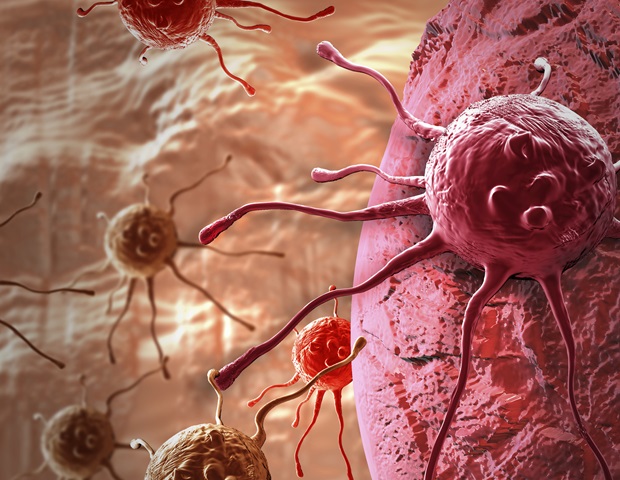
Weiqiang Chen, assistant professor of biomedical engineering and mechanical and aerospace engineering at the NYU Tandon School of Engineering, has been awarded the Maximizing Investigators' Research Award (R35) from the National Institute of General Medical Sciences, a division of the National Institutes of Health (NIH). The five-year, $1.7 million grant will support Chen's lab's efforts to devise engineering-based methods for understanding and improving the efficacy of immunotherapy treatment for cancer.
Chen, who heads NYU Tandon's Applied Micro-Bioengineering Laboratory, explained that the grant will advance three key areas of interdisciplinary research aimed at developing personalized approaches to CAR-T cell therapy, a rapidly advancing cancer treatment modality that can produce remarkable results in select patients, yet carries significant risks.
The funds will support the continued development of Chen's microfluidic "organ on a chip" systems to model disease environments and study cell interactions. This approach, which uses cells from individual cancer patients to create personalized, in-vitro disease models, can quickly provide key information about the potential efficacy of treatment methods - including CAR-T - against a patient's own cancer.
Once you try a cancer therapy, it can take six months to know if it's working. By studying the interactions between tumor cells and T-cells in-vitro, we can determine if a patient is likely to be responsive in just two weeks, and our system allows us to test 10 or more treatments in parallel to find the best option."Chen's research, which blends engineering and medicine, is also probing the mechanical forces at play during interactions between immune cells and cancer cells, particularly during the process by which the former kills the later. Additionally, in a study published recently in the journal Advanced Materials, Chen described a novel mechanical system for measuring how local stress on a cell causes physical changes that could flag chronic diseases.
Weiqiang Chen, assistant professor of biomedical engineering and mechanical and aerospace engineering, NYU Tandon School of Engineering
He noted that there are force-mediated changes in T-cell morphology that facilitate their attachment to cancer cells, and additional forces applied as immune cells eradicate tumor cells. Through this novel investigation into the mechanobiology of CAR-T cells, Chen and his collaborators hope to illuminate, and eventually optimize, the cell mechanics involved in these interactions.
Finally, the grant will advance a longstanding area of Chen's work--the development of biosensors capable of measuring chemical communication between cells. In this case, Chen aims to create sensors to detect and measure the biochemicals that facilitate communication between immune cells and tumor cells during CAR-T cell therapy.
The R35 is Chen's second award from the National Institutes of Health. Last year Chen received the National Institute of Biomedical Imaging and Bioengineering Trailblazer R21 Award for a lab-on-a-chip system for testing immunotherapy for glioblastoma, "Engineered Glioblastoma Tumor Immunity for Personalized Immunotherapy."
Earlier this month, he was one of just 12 researchers to be named a 2019 Young Innovator by the Biomedical Engineering Society.
NYU Tandon School of Engineering






No comments
Post a Comment